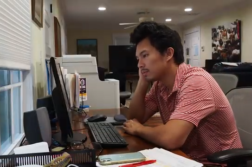ORLANDO, Fla. (Ivanhoe Newswire) — The American Psychological Association reports that 40 to 50 percent of marriages end in divorce. Are your bedtime habits making your relationship stronger or weaker?
Do you take your phone to bed with you?
In a study by Brigham Young University, 143 married or cohabiting women were surveyed on phone dependency. People who felt their partners were overly dependent on their phones felt less satisfied in their relationship.
Psychology today suggests talking about expectations with your partner when it comes to phone use. Make the bed a technology free zone after an agreed upon time, and make the bed a safe space to talk without distractions or judgements.
And “don’t go to bed upset” is an old piece of advice, but now it has scientific backing. In a study published by Nature Communications, subjects could forget disturbing images easier if they were not required to sleep first.
Try to resolve disagreements with your partner before going to sleep. It will be more difficult to settle the disagreement if you sleep on it.
According to Ryerson University’s sleep and depression laboratory, 30 to 40 percent of couples sleep in different beds. Sleeping apart can improve quality of sleep if your partner snores or moves a lot in their sleep. Don’t separate beds to avoid communication, but sleeping apart on occasion can result in better sleep, or at least make you miss your partner.
Contributors to this news report include: Hayley Hudson, Producer; Roque Correa, Videographer and Editor.



